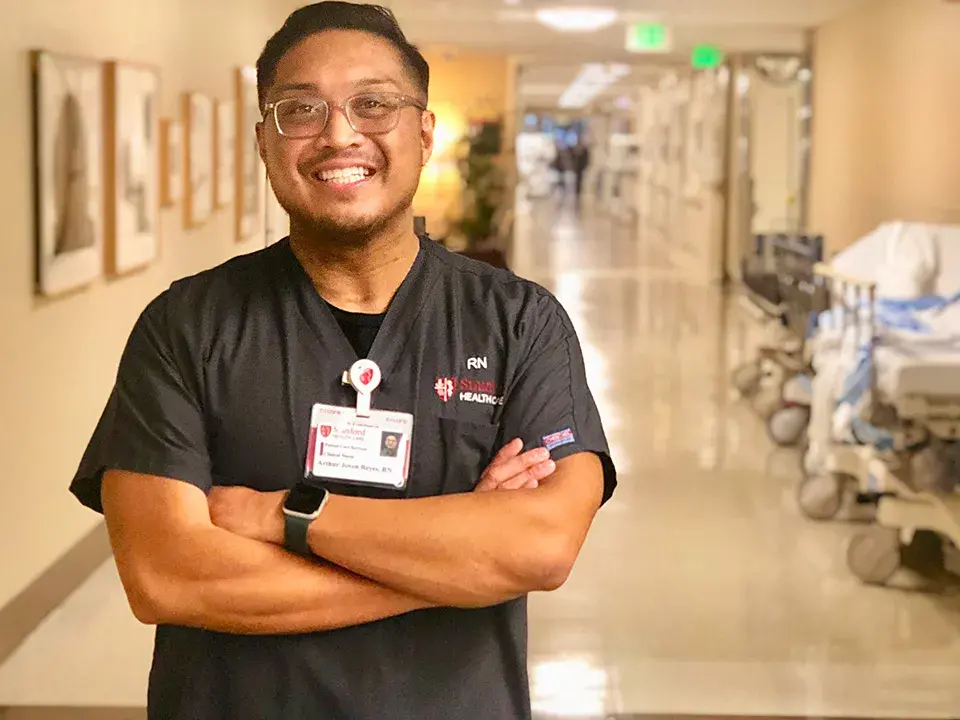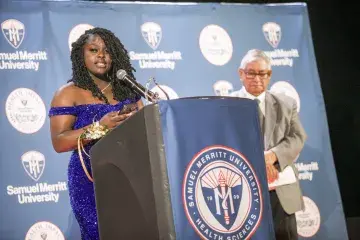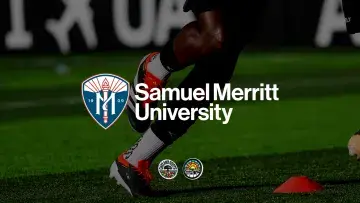How to Land a Coveted Nursing Job Straight Out of School

A.J. Reyes ABSN ’17 nearly died from congestive heart failure in 2010. A seemingly ordinary virus unexpectedly attacked his heart. In a medically induced coma for more than a month, Reyes finally received a transplant at Stanford Health Care, which gave him a second chance at life — one he’s put to good use pursuing his dream to become a nurse.
Where are you working now?
I’m a registered nurse at Stanford Health Care, working on a plastics, ENT, trauma unit. Previously, I worked on a stroke, cardiac telemetry unit at Regional Medical Center of San Jose.
So, you returned to where you had your transplant? Can you tell us about that?
I graduated from the Accelerated Bachelor of Science in Nursing (ABSN) program at the San Francisco Peninsula Campus in June 2017. After finishing the program, I passed my National Council Licensure Examination (NCLEX) in July 2017 and started working in August.
I wanted to quickly build my resume by getting as much experience as I could. I worked with a nurse staffing company that placed me as an employee health RN, where I provided health screenings and vaccinations at several Bay Area hospitals. I also worked at a long-term acute care hospital for half a year before landing a position at Regional Medical Center.
What do you like about your job?
I love that I am able to connect and care for patients and their families. Being in a hospital bed as a patient is a very vulnerable place to be. You may feel helpless, overwhelmed, and afraid. As a nurse, we have the duty and opportunity to be at their side during those times. We are their voice and advocates.
Why was the ABSN program right for you?
I was able to focus solely on my studies in a fast-paced, challenging program. Also, the educators, staff, and my colleagues were very supportive and great resources.
What tips would you give students approaching graduation?
Stay fresh on your nursing knowledge. It will help tremendously with NCLEX. A lot of new grad interviewers will want to see your critical thinking skills and will ask hypothetical scenarios since your experience is limited.
Did you use SMU’s career services offerings?
Yes. I found the interview workshops very helpful. Practicing interview questions helped me get into the right mindset and build confidence.
How did you prepare for job interviews?
I did my homework on each hospital and unit that I applied for and made sure I found ways to incorporate their mission statement and values into my answers. Being prepared also meant dressing for the part, arriving early, and having my “elevator pitch” locked in and ready to go.
Any jobs tips for recent grads?
First, network! Build relationships with different people in the industry — recruiters, managers, staff nurses, anyone who can help you find ways to get your résumé to the right people. Second, don’t wait for a job to come to you. I recommend impromptu drop-ins with managers. They are usually extremely busy so be prepared to give your “elevator pitch” and have your résumé and portfolio ready. Third, if you can’t land a new grad position, find experience another way: volunteer at hospitals, take certification classes, start working at a skilled nursing facility, be a school nurse, etc. Find a starting point and you’ll be able to build your resume quickly.
Tell us your story. Tell us about a friend. We want to hear about students, alumni, and faculty who are breaking the mold and living SMU's mission.


